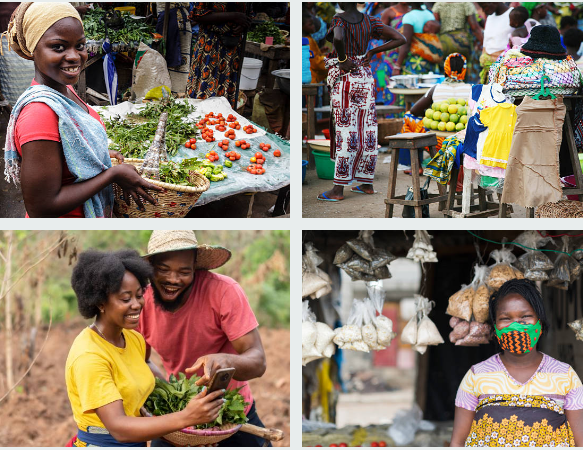Loan Apps Should Be Regulated or Banned in Nigeria
Loan Apps Should Be Regulated or Banned in Nigeria
In This Review

I am incredibly saddened that business moguls have, over the years, developed the idea of finding lucrative ventures in the pain of the suffering Nigerian. When you discover the intent behind this business, you will cower in dismay. At first, it will look like a business module designed to lift the hopes of suffering Nigerians or, at the least, help to mitigate the hardship. However, in the end, it is still just extra effort to deepen further the mystery of struggling Nigeria.
One would ask, why will influential people with the power to push for constant power supply shy away from that endeavor and instead import generators? Or will people rich enough to build refineries instead export the raw product to import it back as an excuse to sell expensively to the masses? The answer is simple; there is more money to make by ensuring there are problems in the land.
As heartless as this is, is it not enough that the elites and government suffer her people in this manner? Why, then, will they allow public bodies and entrepreneurs to take advantage of this mockery? In a country of N38,000 minimum wage (Less than $50 today), why allow a dubious set of foreign people in the guise of helping out financially to give out loans to struggling Nigerians and put a 50% interest also for a ridiculously short time? 7 days?
After gallivanting through Play stores and Google app stores, seeing the lamentations of Nigerians falling victim to the different traps set by these so-called loan apps, I said to myself, there is no way the Nigerian government is seeing this or having a hand in this. It will be the biggest evil of all time. How much are these people making? I became curious ofcourse, is the President aware? Is CBN aware? Are they regulated by the proper financial institution in the country? Where did they get the permit to charge these innocent Nigerians ridiculous interest rates?
Are These Loan Apps Regulated?

Well, I cannot deny the fact that there have been provisions laid down by the Federal Competition and Consumer Protection Commission to put ventures like this in check, but these guys are not a Financial Institution, I mean, judging by the information on their Wikipedia page, it reads;
“In 2019, President Muhammadu Buhari signed into law the Federal Competition and Consumer Protection Act, thereby creating the agency. The agency’s purpose is to develop and promote fair, efficient and competitive markets in the Nigerian economy and to also facilitate access by all citizens to safe products and secure the protection of rights for all consumers in Nigeria.
In 2020, the FCCPC signed a “memorandum of understanding” with the U.S. Federal Trade Commission (FTC), pledging international cooperation in the realm of consumer protection efforts.”
They are just there to represent the consumers, a vast field. I feel finance should be treated specially and independently at that. These people are openly robbing Nigerians blind, and it looks like the Federal Competition and Consumer Protection Commission is paying deaf ears to the whole foul play. Loan apps have preyed on Nigerian consumers for so long it is starting to look like one of the typical abnormalities they have to deal with as citizens of this great nation. Sadly, going by the duties of this commission, I concluded that loan apps are regulated in the country.
My next question is, is the CBN aware of the dubious operations of these loan apps? I went through the reviews of one particular one, and I almost cried. What is quite amusing is that most of these loan apps have more than 80% of the reviews as horrible and bitter complaints. So, they all have something in common. Since they are here to trample on the rights of Nigerians, It is no gainsaying to say if they owned the platforms they upload their apps to; provisions would not be made for Nigerians to air their views to the public. They will be forced to suffer this craziness in silence.
You might want to say, if it is that bad, why don’t you boycott them? The answer is simple, the leadership of Nigeria weather intentionally or not has appeared over the years to be so self-centered that they care less about where the people run to for help. They are not going to provide the help, hence when some other entity presents itself as a blister of hope, the people might find themselves in the mercy of the so-called helper. They have no choice. Majority of them have no choice.
Is CBN Aware?

Fortunuately or not, loan apps are approved by the CBN. But what is most frightening, you do not really need a CBN approval to commence operations as a loan company in Nigeria. So because of this fact, not every loan company is registered with the CBN. I have made efforts to help get a list of loan apps that are registered with the CBN, and by common sense, due to CBN regulations, these ones are with better charges are of good character, to an extent.
Here are a List of Loan Apps Registered With CBN.
One might ask, is there no penalty for operating outside CBN’s registration? I think this is exactly why this article came to life. If everyone of this loan apps needed the CBN’s registration to become fully functional, this ridicule under the nose of the federal government would not see the light of day. So, why is it possible to run a loan business without the government interfering?
The answer is simple: For some reason, the loan apps are seen by the government as a means of support for her people. The support that they themselves can not provide. Plus when you try to seek information on what it takes to set up a money lending business in Nigeria, you notice how easy it is and why these people operate with so much freewill and odacity. Check the requirements and procedure below.
Step 1:
Apply to the magistrate court, where you would be required to submit the following
- Application letter
- Certificate of incorporation
- Tax and police clearance
- Memorandum and articles of association of your company
- Evidence of maintenance of a current bank account
- Certified copies of the CAC form 2 and 7
If successful, the magistrate court registry would give you a letter and Form B of the money lending ordinance to proceed.
Step 2:
application to the Ministry of Home Affairs and Tourism through the following steps:
- Payment of N10,000 to purchase the money lender certificate
- Collect an invoice of N50,000 from the Ministry
- Finally, submit your application with the following documents:
- Form B and Form C from the Magistrate court
- Evidence of payment of application fees
- Certificate of incorporation
- Police report from the commissioner of police
- PAYE certificate
- A 3-year income tax clearance certificate
Step 3:
This step simply involves visitation and inspection of your business office by the ministry. Therefore, on successful inspection, you would receive your Money Lending Permit.
When you look at the steps above, you will notice that there is nothing to indicate that enquiry is made into the mode of operation and or manual given by the government to the company on the rules of money lending operations in the country. As a matter of fact, the only thing very obvious are the various fees stipulated to pay to get certain documentations, it is a country run by money. When you have money, pay up and start up whatever you want to start up in the country and no one will have your time, so you can start to understand why these guys have it easy.
What has CBN Done to Curb The Menace of Loan Apps?
Nothing much in the sense of being drastic! The best the CBN or the Federal government have done is issue warnings to the public, not the loan apps, the public! Warning them to beware of some certain loan apps. Yes, we know some of these dubious ones, they can continue to operate freely but you have be warned to abstain from them. These warnings at best reaches the newspapers and their online platforms, you wonder, how far, really does the government want this message of warning to go?
Now, This is Why Loan Apps Should Be Regulated or Banned in Nigeria
I am not saying banning loan apps is the solution, as a matter of fact, that, in a lot of cases can be the worst idea ever. Ban a firm or someone wanting to loan you money? No. But when that money is nothing but a trap you have you lose more and more. The sort of money you receive from these guys can not be invested in anything meaningful, scratch that, it can not be invested in anything. They are not helping you to save or invest. They are giving you an opportunity to eat your life away. Any loan that does not add value intentionally is diabolic. If they must continue these short term loans, it should be reasonable. These loans are not even meant for Salary earners, you don’t earn salaries in seven days. And with the way they go about retreiving the loans, I feel they are capable of making a frustrated person suicidal.
Is There Hope?
When I say loan apps should be regulated or banned in Nigeria, I do not mean it as a solution. Well, maybe there is light at the end of the tunnel. the Federal Competition and Consumer Protection Commission in a recent publication has issued an ultimatum to some of these loan apps with the help of Googleplay, and all we can do is hope. The ultimatum includes a few requirements, see below;
In August 2022, Nigeria’s FCCPC released the Limited Interim Regulatory/Registration Framework and Guidelines for Digital Lending to curtail predatory lending practices in the country. In addition to filling out a digital lending guidelines form, digital lenders in the country are expected to furnish the FCCPC with the following documents:
-
A certified copy of the applicant’s certificate of incorporation.
-
A brief description of the applicant’s business and, where relevant, their groups.
-
An organogram showing role players and the location of key role players and any operational approving authorities/person.
-
Name and address of a person within the business authorised to accept all correspondence and accept service on behalf of the business.
-
Evidence of membership in any trade or professional associations.
-
Any service level agreements with any service providers with respect to operations but excluding administration.
-
Evidence of feedback and complaint resolution mechanism.
-
Evidence of tax payments or tax waivers where applicable.
-
All applicable fees associated with service.
-
FCCPC INTERIM DIGITAL LENDING GUIDELINES FORM 002 – Declaration for Digital Lending Businesses in Nigeria.
This list up there is more like it, information out there reveals that loan apps are given till 30th of December to get their act together and make provisions for this list or get kicked out of the playstore, I guess there is about to be a breath of fresh air for Nigerians and Africa at large.
